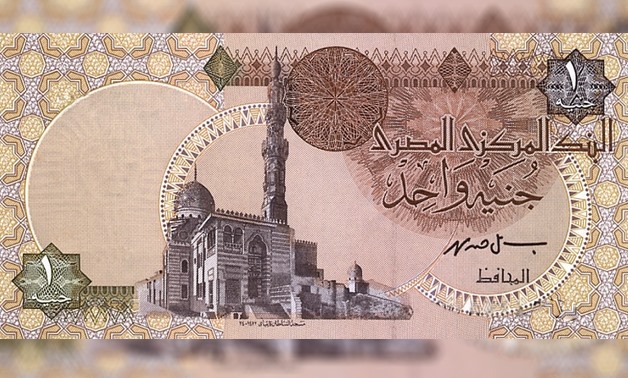
Egyptian Pound - Wikimedia
CAIRO – 7 July 2017: Central Bank of Egypt (CBE) surprisingly raised the interest rate two percent although annual headline inflation fell in May 2017 to 29.7 percent compared to 31.5 percent month-on-month, for the first time since October 2016.
Late Thursday, the CBE’s Monetary Policy Committee (MPC) hiked the overnight deposit and lending rates from 16.75 to 18.75 percent and from 17.75 to 19.75 percent, respectively, in an attempt to tame a new inflation wave on the back of slashing energy subsidies.
The CBE highlighted in a statement Thursday that despite the decrease of the headline inflation, the underlying inflation remained higher than consistent with achieving its target, which led the bank's committee to take its decision.
Economists said that the hike is harming the borrowing costs of companies, pointing that the bank's seven percent hike to the interest rate since November may be an influence by the IMF.
The bank reasoned its move to curbing the inflation and the impacts of the high prices of fuel and electricity, in addition to high value added tax (VAT) and to preserve the purchasing power of the Egyptian pound, assuring that the decision will be temporary and expecting a decreasing move by the end of this year.
On May 21, CBE has increased the overnight deposit and lending rates by 200 basis points from 14.75 percent to 16.75 percent, and from 15.75 percent to 17.75 percent, respectively. This was the first action since the 300 bps hike on the same day of the pound's flotation in November.
The government has introduced the VAT and reduced fuel subsidies, following the International Monetary Fund's (IMF) recommendations to finalize a $12 billion loan.
Inflationary pressures were increased by the higher VAT, which became effective July 1, 2017, in addition to higher electricity prices scheduled for July 2017 as well as other potential regulated price adjustments, according to the statement.
On Thursday, the Minister of Electricity Mohamed Shaker announced the anticipated new electricity tariffs, with price increases ranging between 15-36 percent depending on the consumption bracket.
The MPC foresaw an easing measure for the monetary stance, allowing a reduction in interest rates, as soon as underlying inflation starts to moderate.
Comments
Leave a Comment